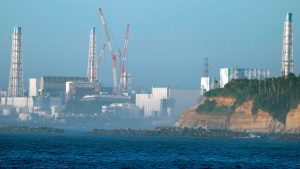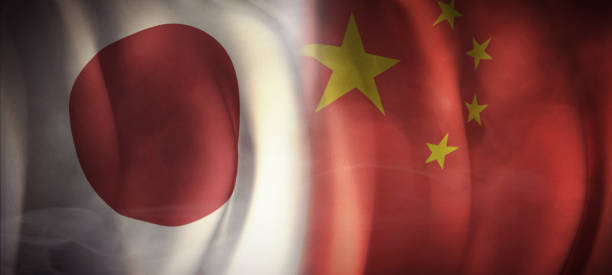Introduction Japan’s decision to release treated radioactive water from the Fukushima nuclear disaster site has stirred a diplomatic and environmental storm, prompting China to swiftly retaliate. This latest development highlights the complex interplay of geopolitics, environmental concerns, and the ever-evolving dynamics between the two neighboring nations. Escalating Tensions: China’s Reaction to Japan’s Fukushima Water Release
Introduction
Japan’s decision to release treated radioactive water from the Fukushima nuclear disaster site has stirred a diplomatic and environmental storm, prompting China to swiftly retaliate. This latest development highlights the complex interplay of geopolitics, environmental concerns, and the ever-evolving dynamics between the two neighboring nations.

https://cloud front.net
Escalating Tensions: China’s Reaction to Japan’s Fukushima Water Release
China’s swift retaliation follows Japan’s announcement of its intention to release treated water from the Fukushima nuclear plant into the Pacific Ocean. The decision, driven by the need to manage the growing volume of stored water, has raised alarm bells both domestically and internationally. China’s response adds a layer of complexity to an already sensitive situation.
Geopolitical Ripple Effects: The Fallout of Japan’s Controversial Decision
Japan’s decision to release Fukushima water has broader geopolitical implications, as neighboring countries scrutinize the move for potential environmental and health risks. China’s retaliation is a clear signal that such decisions have the potential to impact diplomatic relations and regional stability. This episode serves as a reminder of the intricate nature of international relations in an era of heightened sensitivities.
Environmental and Diplomatic Concerns: China’s Justification for Retaliation
China’s retaliation is rooted in both environmental and diplomatic concerns. The potential consequences of releasing radioactive water into the Pacific Ocean have sparked fears about the marine ecosystem and food safety. China’s reaction, therefore, underscores the imperative to prioritize environmental protection and the well-being of neighboring nations.
Navigating a Delicate Balance: The Broader Implications of the Escalation
The escalating tensions between China and Japan over the Fukushima water release have broader implications. The two nations share not only a geographical proximity but also complex historical and political dynamics. As the fallout from this episode reverberates, the delicate balance between safeguarding public health, addressing environmental concerns, and maintaining diplomatic relationships becomes increasingly challenging.
Conclusion
In conclusion, China’s swift retaliation in response to Japan’s Fukushima water release exemplifies the intricate interplay of environmental concerns, geopolitical factors, and diplomatic relations. As the global community watches closely, the situation underscores the importance of transparent communication, responsible decision-making, and collaborative efforts to address complex challenges. Navigating the complexities of such situations requires a commitment to regional stability, environmental integrity, and the pursuit of diplomatic solutions that reflect the interests of all parties involved.

















Leave a Comment
Your email address will not be published. Required fields are marked with *